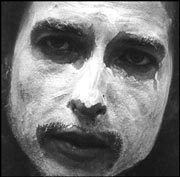SUPREME BEINGS OF LEISURE
BALDWIN BROTHERS, BEN NEIL
Chop Suey, 206-324-8000, $15
9 p.m. Fri., Oct. 11
In the indie-rock world, there’s a catchall term for musicians whose recording gear is crammed into a small room in a rented apartment, utterly devoid of soundproofing or Buick-sized mixing boards: “Bedroom band.” Aggressively D.I.Y., earnest to the point of moistness, the stereotypical bedroom musician wears heart, spleen, and various other organs unabashedly sleeveside. The music varies in style and content, as music does, but the common denominator is, finally, purity of vision. What you’re hearing, for better or worse, is precisely what the artist wanted you to hear.
All of which makes Supreme Beings of Leisure’s new album, Divine Operating System, something of a fish-nor-fowl affair. SBoL, you may remember, delivered an eponymous debut in 2000, a global mix of hip-hop, Eastern melodies, and instrumentation and a healthy grab-bag approach to Western music’s rich pop-culture heritage (“Golddigger,” one of the disc’s most talked-about cuts, drew intelligently from the work of film scorers Ennio Morricone and Nino Rota).
Underneath the groove on the Supreme Beings’ first album, however, lay a love for the pop-song format, a coherent attention to structure that kept the record from degenerating, as the most derivative trip-hop always does, into an exercise in soulless groove. That focus comes even more to the fore on Divine Operating System—and, interesting to note, it’s an album that was recorded largely in one man’s apartment.
Ramin Sakurai is one-half of Supreme Beings of Leisure, the half you prob- ably won’t notice immediately. Likely, what you’ll hear first is Geri Soriano- Lightwood’s utterly remarkable voice, an instrument that rises, glides, soars, and settles with the calm assurance of a dove in flight. Sakurai, however, is the composer, arranger, performer, and/or programmer who generated the lion’s share of the music on SBoL’s new disc. As such, he’s largely responsible for its sonic scope, which is at once more expansive and more intimate than Supreme Beings’ first album.
“The way [Geri and I] write calls for a collaborative process,” Sakurai reports. “I write a bit of music for her, and she comes back with the words. We rearrange it until we’re happy with it; then it’s done.”
It’s a process used for the previous disc as well, but a more relaxed atmosphere surrounded Divine Operating System, which took nearly a year and a half to assemble. Unlike the last record, most of the basic tracks—including Soriano-Lightwood’s vocals—were recorded not in a rented studio, but in Sakurai’s own bedroom.
“It resulted in a much looser, less stressful vibe,” he says. “For the first record, Geri had only a week to do her final vocals. Since we kept everything at home this time, she could come in as she wanted and take her time. Actually, though, we ended up keeping most of her first-take vocals—we rerecorded some things, but often when we went back to listen, we realized she’d gotten it on the first pass. It was a lot more comfortable for her, knowing she didn’t have a half-hour to get it nailed. And we weren’t wasting thousands of dollars on studio time. It seems like I have to do a major gear and software upgrade every few weeks, but the new setting definitely contributes to the vibe of the album.”
WHAT RESULTS FROM the Supreme Beings bringing it all back home is that rare trip-hop album that plays as well in the home as it does in the club. Cuts like “Get Away,” “Catch Me,” and “Calamity Jane” not only deliver solid, bass-heavy grooves, they also work as cohesive, fully-formed pop songs. “Get Away” is an especially vibrant highlight, a sensuous and hypnotic cut that chronicles the narrator’s slow dissolution into an overpowering desire. The object of that desire, however, is left tantalizingly unclear: “As the sea overpowers,” sings Soriano-Lightwood at the end of each verse, her aching voice rising as a wash of sound signals the chorus.
Divine Operating System is filled with such moments, highlighting an interplay between voice and instruments, which, if not precisely new, is certainly more intuitive than on SBoL’s debut album.
“We made a conscious effort [while writing DOS] to focus on the songs as songs and not just as individual grooves,” says Sakurai. “It took us about a year and a half from start to finish, from writing to recording and mixing the final album. With the time we had, we knew we wanted to do something that would separate this album from the first one.”
The personnel roster on Divine Operating System, however, bears some similarities to the group’s first release. Suzie Katayama and Bill Meyers, who have contributed string arrangements to the Supreme Beings of Leisure in the past, make return appearances here. Also reappearing are a group of string players whom Sakurai, in his best George Clinton fashion, recently dubbed the “Love Supreme Orchestra.”
“They looked at us like we were crazy,” he laughs. “But it’s like the ‘Barry White Orchestra’: We’d spent so much time making sure we could working with people we loved and respected—like Suzie and Bill—and here are all these session players who, once upon a time, used to go to school an hour early just so they could practice with the school band, they used to get beaten up by the other kids. . . . They’ve loved music so much, we just looked at them and said, ‘You guys are the Love Supreme Orchestra.’
“I mean, love is where it starts, right?” he asks. “Without love, none of us would be here . . . there’d be no plants, no people, no Earth . . . ” he trails off. “Maybe I’m getting too deep. But yeah,” he says, animated again, “creation equals love. I feel like I can’t even claim ownership of the songs—I didn’t write them, Geri didn’t write them. It happened when all the pieces came together. We were just the antennae.”









